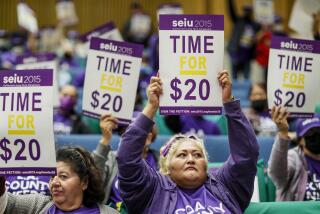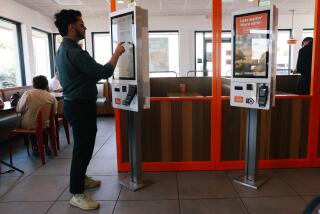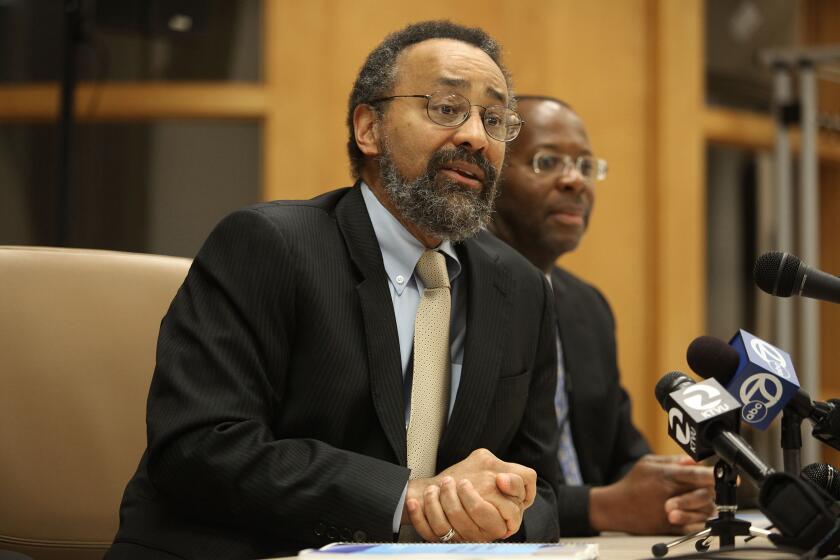Minimum wage hikes put pressure on businesses to ‘re-engineer labor force,’ some say
Selwyn Yosslowitz said that minimum wage hikes add increased pressure to restaurants, which already operate on very slim margins. With the minimum wage going up, Yosslowitz said he’s going to have to rethink the menu and what dishes the restaurants serve.
“First, you have to raise prices, otherwise you’ll be out of business,” said Yosslowitz, president of the Marmalade Café, which operates seven Southland restaurants and an outlet at LAX. Restaurant owners also have to think about “re-engineering the menu” to require fewer kitchen workers.
“We will try to re-engineer the labor force,” he said. “Maybe try to reduce the number of bus boys and ask servers to bus tables.”
Lawmakers and labor unions have struck a tentative deal to raise the statewide minimum wage to $10.50 an hour next year and then gradually to $15, averting a costly political campaign this fall and possibly putting California at the forefront of a national movement.
The deal was confirmed Saturday afternoon by sources close to the negotiations who would speak only on condition of anonymity until Gov. Jerry Brown makes a formal announcement as early as Monday.
The minimum wage compromise ends a long debate between the Democratic governor and some of the state’s most powerful labor unions. For Brown, it’s political pragmatism; numerous statewide polls have suggested voters would approve a minimum wage proposal — perhaps even a more sweeping version — if given the chance.
According to a document obtained by The Times, the negotiated deal would boost California’s statewide minimum wage from $10 an hour to $10.50 on Jan. 1, 2017, with a 50-cent increase in 2018 and then $1-per-year increases through 2022. Businesses with fewer than 25 employees would have an extra year to comply, delaying their workers receiving a $15 hourly wage until 2023.
Future statewide minimum wage increases would be linked to inflation, but a governor would have the power to temporarily block some of the initial increases in the event of an economic downturn.
Yosslowitz said he supports a fair wage, but his biggest bone of contention is that minimum wage legislation doesn’t take into account that servers can make many times their hourly pay in tips. He said some of his servers can make $25 to $35 in tips alone.
“So you are paying $15 an hour to someone who is already making $25, $30 an hour,” he said. “The problem we have is that they don’t take into consideration the total compensation our service staff are already making.”
The other big worry: that employees already making $15 an hour, before the hike, will demand a raise as well, Yosslowitz said.
“It’s a chain reaction,” he said.
More to Read
Start your day right
Sign up for Essential California for news, features and recommendations from the L.A. Times and beyond in your inbox six days a week.
You may occasionally receive promotional content from the Los Angeles Times.









